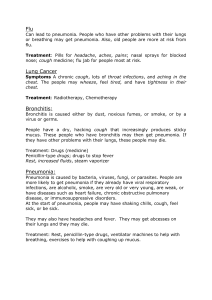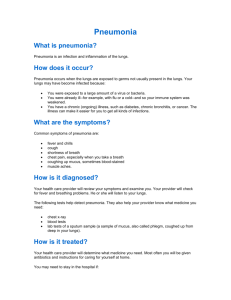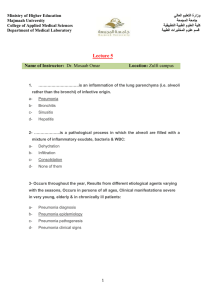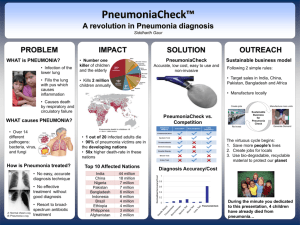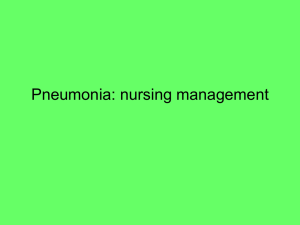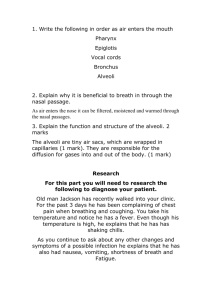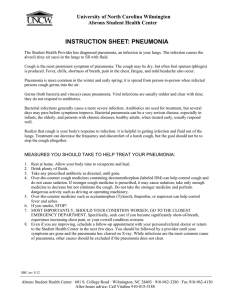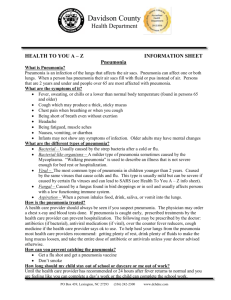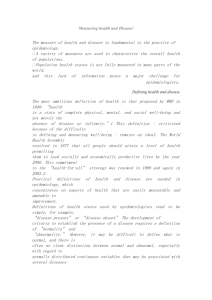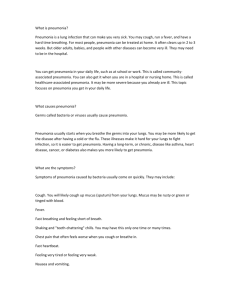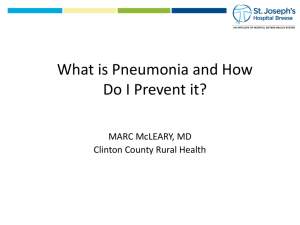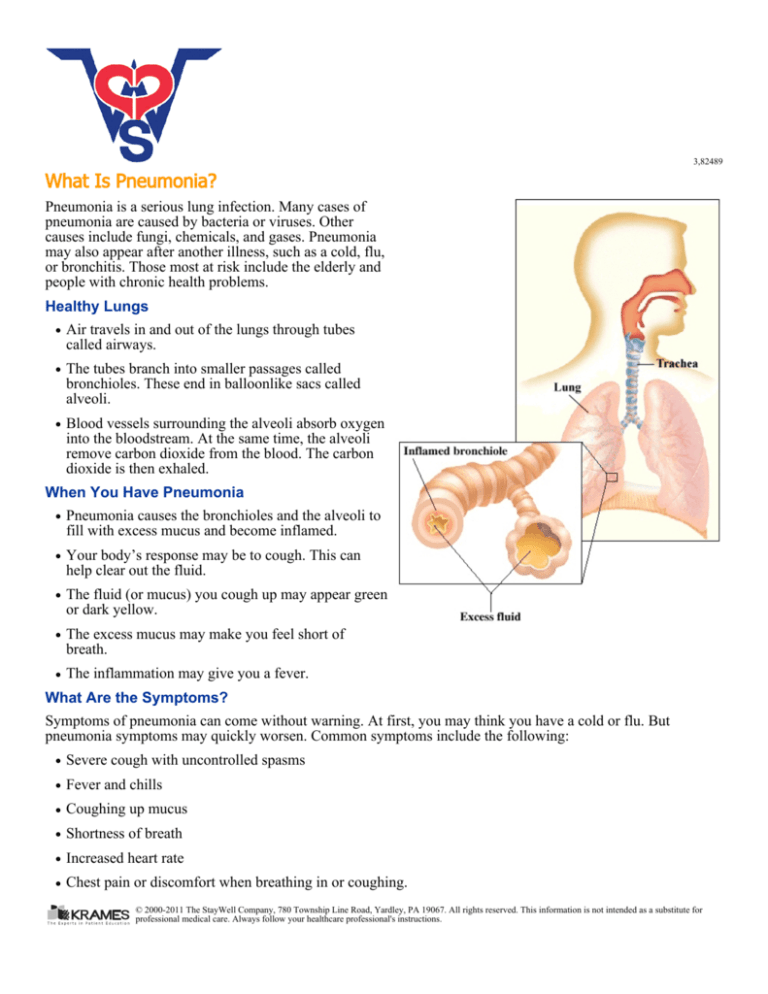
3,82489
What Is Pneumonia?
Pneumonia is a serious lung infection. Many cases of
pneumonia are caused by bacteria or viruses. Other
causes include fungi, chemicals, and gases. Pneumonia
may also appear after another illness, such as a cold, flu,
or bronchitis. Those most at risk include the elderly and
people with chronic health problems.
Healthy Lungs
• Air travels in and out of the lungs through tubes
called airways.
• The tubes branch into smaller passages called
bronchioles. These end in balloonlike sacs called
alveoli.
• Blood vessels surrounding the alveoli absorb oxygen
into the bloodstream. At the same time, the alveoli
remove carbon dioxide from the blood. The carbon
dioxide is then exhaled.
When You Have Pneumonia
• Pneumonia causes the bronchioles and the alveoli to
fill with excess mucus and become inflamed.
• Your body’s response may be to cough. This can
help clear out the fluid.
• The fluid (or mucus) you cough up may appear green
or dark yellow.
• The excess mucus may make you feel short of
breath.
• The inflammation may give you a fever.
What Are the Symptoms?
Symptoms of pneumonia can come without warning. At first, you may think you have a cold or flu. But
pneumonia symptoms may quickly worsen. Common symptoms include the following:
• Severe cough with uncontrolled spasms
• Fever and chills
• Coughing up mucus
• Shortness of breath
• Increased heart rate
• Chest pain or discomfort when breathing in or coughing.
© 2000-2011 The StayWell Company, 780 Township Line Road, Yardley, PA 19067. All rights reserved. This information is not intended as a substitute for
professional medical care. Always follow your healthcare professional's instructions.

